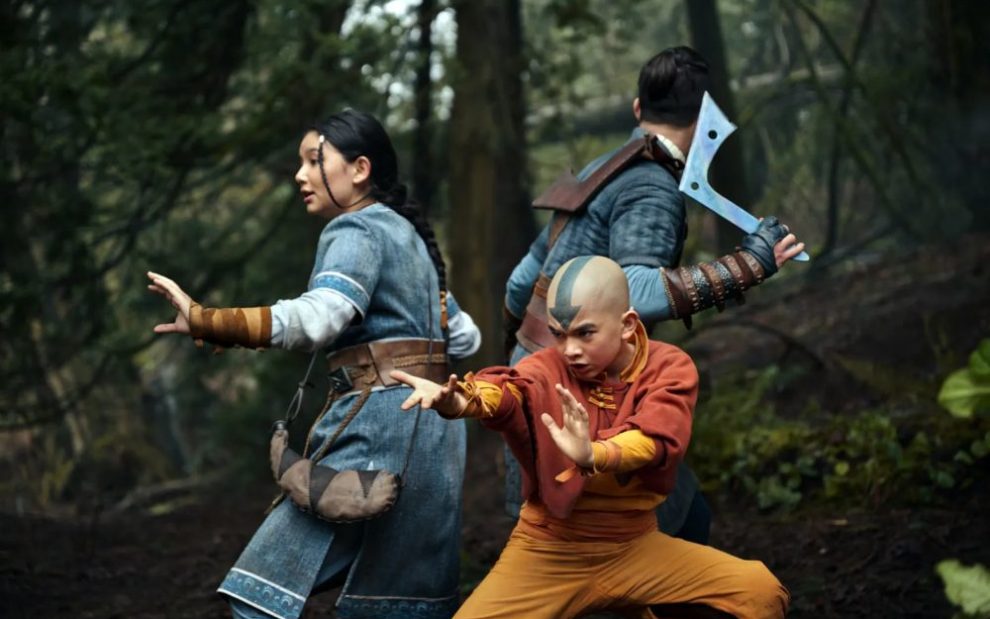Avatar: The Last Airbender
Developed by Albert Kim (Netflix, 2024)
On one hand, Avatar: The Last Airbender is familiar, almost predictable. Repeatedly, Avatar exhibits a fidelity to genre: When ominous music accompanies dark and jagged visuals or when the scene lightens and the score turns soaring and hopeful, little question remains as to who might be the good guy and who might be bad. Perhaps it is this visual and aural heavy-handedness that sweetens the show’s surprises, because Avatar often delights with unexpected plot reveals and character exposition.
Avatar follows a young boy and his friends who struggle to bring peace and justice to a world at war. The world of Avatar is mystical, supernatural, and suffused with religious portent. Various characters are elemental “benders,” having the power to move air, water, fire, or earth. Set in a fictionalized world that mirrors Indigenous Arctic and Asian religious traditions, Avatar highlights issues such as rebirth, incarnation, reincarnation, meditation, enlightenment, and spiritualism. But in addition to these religious concepts and practices are even broader theological concerns: Is war ever justified? What brings lasting peace? What makes an ethical leader? What does it mean to be “chosen”?
Avatar—adhering to the “hero’s journey” narrative structure—is a simple story about friendship, responsibility, and adventurous questing in which moral lessons appear clear-cut. On the other, it’s about much more: Does true friendship require total self-sacrifice? Do good leaders always resist power? Is violence sometimes the answer?
This article also appears in the May 2024 issue of U.S. Catholic (Vol. 89, No. 5, pages 38). Click here to subscribe to the magazine.
Image: Robert Falconer/Netflix
















Add comment